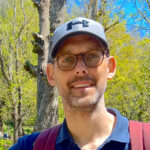Project description
The complex problem of the origin of life can be approached from different angles and scientific disciplines: while chemists may attempt to extrapolate from their understanding of self-organization processes in organochemical networks towards the first living systems, biologists may reason ‘from hindsight’, based on their knowledge of extant life and their reconstruction of the most plausible pathways that led to its emergence. In this project, we will take steps towards integrating these two approaches, which are still far from meeting each other. We will do this by developing theoretical models of selection and diversification in autocatalytic chemical networks with limited initial capacity for storing and transmitting hereditary information, and we will simulate scenarios for their stepwise transition towards systems with the potential of open-ended evolution. The project will focus on two complementary model systems: the first is a system of synthetic chemical replicators studied in the lab of the project’s co-supervisor, prof. Sijbren Otto; the second considers oligomers with template-based replication and catalytic activity modeled on the properties of RNA. Our aim is to apply the integration of systems chemistry and evolutionary perspectives to several longstanding questions in the origin-of-life field, including the origin of metabolic control and information storage, the emergence of individuality, and the mediation of conflict and cooperation between coexisting replicators.
Additional specifications
We look for a candidate with a MSc in Biology or another discipline relevant for the study of prebiotic evolution / origin-of-life. Experience in complex-adaptive-systems theory and/or quantitative (evolutionary) modeling is recommended.

